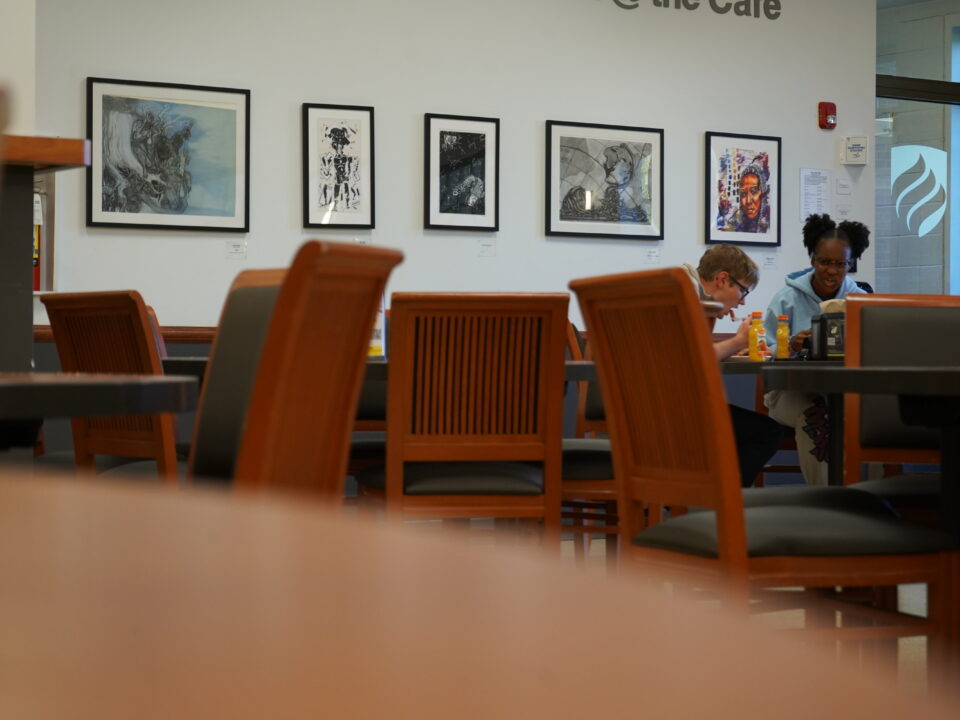Elmhurst University has a communication problem


Graphic by Rachel Fratt
Elmhurst University has a communication problem. It’s almost comical how well-communicated the communication issues are. Students seem to get too many or too few emails, and they’re never at a convenient time.
It doesn’t help when EU’s websites and web services also tend to have out of date or false information, with students either getting confused and lost or using the wrong service for the task they need to complete.
An example: university dining services. The EU website lists dining hours and basic contact information for Chartwells, but the page has not been updated since at least last year, considering Bill Duro is still listed as the manager and lead contact for hiring inquiries.
But if you don’t need to contact Angel Almodovar, the current head of EU Dining services, the seldom updated hours are an issue too. On the EU website featuring dining options, hours are only the basic schedule, with no up-to-date information. At the top of the page is a small paragraph advising students to use the Chartwells-run “Dine-on-Campus” website, but no indication that the page itself is not meant to be used for current students.
Instead, like most of the resources at elmhurst. edu, these pages are meant as a rough guide for prospective students. After navigating campus life for a while, this becomes obvious. Most informational pages only contain basic information and a contact for further reading. This becomes an issue when there is no obvious advertising for the Elmhurst “Dine-on-Campus” website.
Because the link to the actual updated and accurate dining hours is planted in a short blurb about working for Chartwells, it can be ignored and passed over to look at the (wrong) hours in large bold text just below.
Once you learn about this, it doesn’t become a big issue to navigate to the right website to begin with, but it can be confusing, especially because the MyElmhurst Student portal has no indication of dining hours or information at all (and actually contains a link to a different website featuring a menu of items for the date).
Even in the student portal, some pages are rarely up to date. Student jobs and work-study are mentioned countless times during prospective student tours, orientation week, and advising meetings. The campus jobs page, however, is almost never kept up to date.
Of the 27 jobs currently listed on the board, 20 of them are filled, no longer accepting applications, or do not exist anymore (temporary positions for J-Term or Fall Term).
A handful of listings are even duplicates of previous ones. There is a listing for Groundskeeping under current manager Joseph Nikoli, as well as an older listing under David Mack. Mack left EU mid-way through fall semester.
For a student trying to work on campus, whether it be to afford the classes they are taking, or just to have some spending money, the application process in general is confusing and changes depending on the job being applied for.
Most jobs ask students to reach out to a contact listed on the listing. Some (notably: student ambassadors) have a link to a separate online application. Depending on the listing, students may also be asked to fill out a formal university job application, listed for download at the top of the job postings page.
The varying application forms also coincide with a dispersion of information on the listings themselves. The information varies wildly, sometimes listing the role under “Job Title”, other times “Student Position Title”, and other times not listing the name of the job at all, leaving only the name of the department that created the listing.
Listings sometimes have a brief description and a list of responsibilities, sometimes just one of the two, and other times both categories are listed under one or the other. They contain conflicting and often duplicated information.
EU’s Department of Communication and Media contains four main major programs and various minors and major tracks to complement them. Within this department are countless students, staff, and faculty training to work in film and television production, marketing and advertising, or journalism.
What ties these people together is the need and passion for clear communication. It’s how our world works. Maybe if the EU staff in charge of their online communication took a page out of the professors they employ, this article wouldn’t exist.


